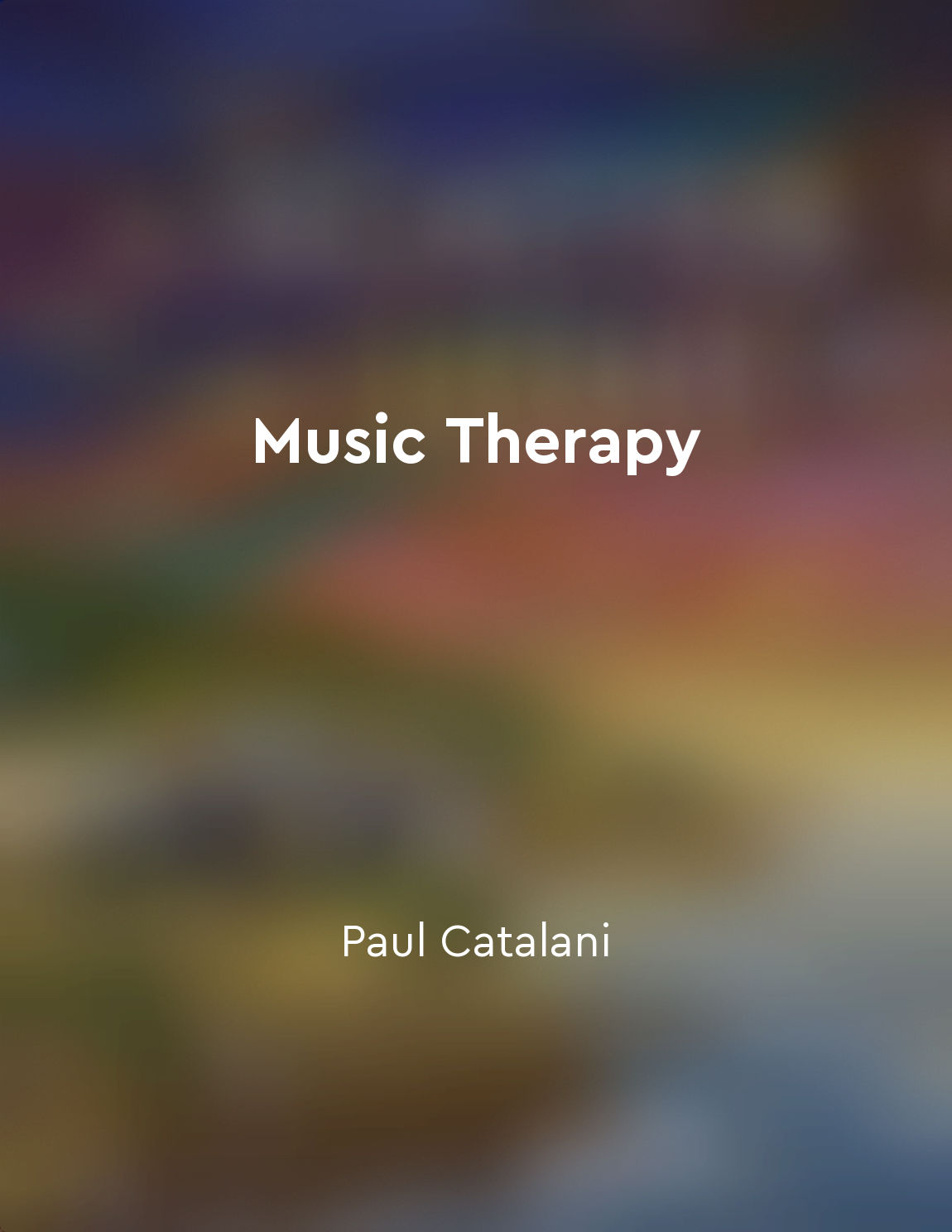Integrating music into therapeutic practices from "summary" of Music Therapy by Paul Catalani
Integrating music into therapeutic practices involves utilizing the power of music to address various physical, emotional, cognitive, and social needs of individuals. Music therapy is a unique and effective form of therapy that can be used in a variety of settings, including hospitals, schools, nursing homes, and mental health facilities. By incorporating music into therapeutic practices, therapists can help clients express themselves, improve their mood, reduce stress and anxiety, enhance communication skills, and promote overall well-being. Music therapy sessions may involve listening to music, playing musical instruments, singing, or creating music. The therapist works with the client to identify specific goals and objectives for the sessions, and then uses music as a tool to help the client achieve those goals. For example, music can be used to help individuals with autism improve their social skills, or to help stroke patients regain their speech and motor skills. One of the key benefits of integrating music into therapeutic practices is its ability to engage multiple areas of the brain simultaneously. Music has been shown to stimulate the brain in ways that other forms of therapy cannot, making it a powerful tool for promoting healing and growth. Additionally, music is a universal language that can transcend cultural and linguistic barriers, making it accessible to individuals of all ages and backgrounds. Music therapy is a dynamic and evolving field that is supported by a growing body of research and evidence. Studies have shown that music therapy can be effective in treating a wide range of conditions, including depression, anxiety, PTSD, and chronic pain. As the field continues to expand, more and more therapists are recognizing the value of integrating music into their therapeutic practices.- Integrating music into therapeutic practices offers a holistic and person-centered approach to healing. By harnessing the power of music, therapists can help clients tap into their emotions, develop coping strategies, and build connections with others. Music therapy is a versatile and adaptable form of therapy that can be tailored to meet the unique needs and preferences of each individual client.
Similar Posts
Education at Perkins School for the Blind
At Perkins School for the Blind, I received a comprehensive education that was tailored to my unique needs as a blind and deaf ...
Brain is capable of healing itself
Norman Doidge discusses the remarkable ability of the brain to heal itself in his book 'The Brain's Way of Healing'. He explore...
Following classroom rules
In first grade, we learn all about following classroom rules. These rules are very important because they help us stay safe and...
Social interactions play a significant role in combating melancholy
Social interactions are essential in the battle against melancholy. When a person is feeling down, isolated, and disconnected f...
The natural world holds untold wonders
Every time I ventured out into the world, I was reminded of the vastness and complexity of nature. The trees, the mountains, th...

Incorporating music into relaxation techniques
One effective way to enhance relaxation techniques is by utilizing music as a complementary tool. Music has the power to evoke ...

